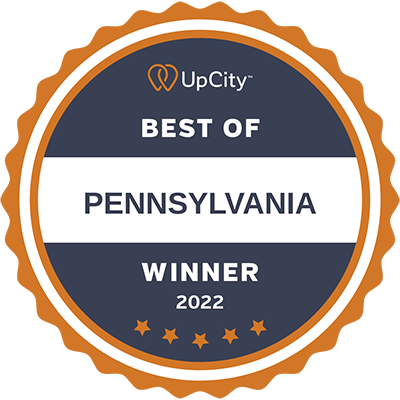Ranking high on search engines isn’t just luck—it’s the result of strategic website optimization. Optimizing a website means refining its performance, usability, and content to meet search engines’ standards and create a seamless user experience. By focusing on website optimization, you improve your chances of ranking higher, attracting more visitors, and ultimately driving more business. In this post, we’ll explore why website optimization matters for SEO, breaking down key elements that help boost your site’s visibility and effectiveness.
Understanding the Connection Between Website Optimization and SEO
What is Website Optimization?
Website optimization is the process of enhancing a website’s structure, speed, and content to make it more efficient and user-friendly. It’s not just about looks; it’s about building a site that functions well for both users and search engines.
Why Search Engines Favor Optimized Websites
Search engines like Google reward sites that provide a smooth, enjoyable experience. They rank sites higher when they load quickly, are easy to navigate, and display properly on all devices. Google’s Core Web Vitals, for example, focus on aspects like loading speed, interactivity, and visual stability—all essential parts of website optimization. By meeting these standards, an optimized site is more likely to achieve better rankings, meaning it appears higher on search engine results pages (SERPs) and is more visible to potential visitors.
Key Elements of Website Optimization That Impact SEO
Page Load Speed
Page load speed is crucial. Slow-loading websites frustrate visitors, leading to higher bounce rates and lower search rankings. Speeding up your site—by compressing images, reducing redirects, and minimizing JavaScript—improves user experience and directly benefits SEO. Google’s algorithms prioritize sites that load quickly, so this aspect of website optimization is key to ranking success.
Mobile Optimization
With mobile browsing dominating the web, making sure your site looks and works great on smartphones and tablets is essential. Mobile optimization goes beyond resizing; it includes touch-friendly buttons, fast loading, and a clean, responsive layout. Google’s mobile-first indexing means that a site’s mobile experience impacts its overall SEO ranking, making mobile optimization a top priority for any website optimization strategy.
User-Friendly Navigation
Clear, intuitive navigation helps visitors find what they’re looking for easily, which keeps them on your site longer and reduces bounce rates. Streamlined navigation not only benefits users but also boosts SEO, as search engines prefer sites that are easy to crawl and understand. A simple, logical menu structure is an effective step in website optimization that enhances usability and supports higher rankings.
On-Page SEO Optimization
On-page elements like title tags, meta descriptions, and header tags are essential to website optimization and directly impact SEO. Optimizing these elements with relevant keywords and clear descriptions improves your site’s chances of ranking for targeted terms. On-page SEO ensures search engines understand your content’s relevance, helping your site connect with the right audience.
Content Quality and Structure
Good content keeps visitors engaged, which positively impacts SEO. Optimizing content means creating valuable, well-structured text that’s easy to read. Using headers, bullet points, and images helps break up content, making it more appealing to both readers and search engines. Quality content also encourages visitors to stay on your page longer, signaling to search engines that your site provides value.
Tools and Strategies for Effective Website Optimization
Essential Optimization Tools
Using the right tools can make website optimization a lot easier and more effective. Tools like Google PageSpeed Insights, GTmetrix, and SEMrush help identify areas for improvement, whether it’s load speed, SEO elements, or user experience. These tools offer insights into how your website performs and recommend adjustments that can boost your SEO.
Technical SEO Aspects
Technical SEO is a critical part of website optimization, covering aspects like XML sitemaps, robots.txt files, and schema markup. These elements help search engines understand and index your website more effectively, which can lead to improved rankings. Ensuring that your website’s back-end structure is sound and optimized makes it easier for search engines to crawl and rank your pages.
Ongoing Optimization and Testing
Website optimization isn’t a one-time task—it’s an ongoing process. Regular performance audits and A/B testing allow you to keep up with changing user preferences and search engine updates. By tracking performance with Google Analytics, you can see how users interact with your site and make necessary adjustments. Continuous optimization keeps your website competitive and ensures it consistently delivers a top-notch experience.
The Long-Term Benefits of SEO-Focused Website Optimization
Improved Search Engine Rankings and Visibility
A well-optimized website steadily climbs the search rankings, leading to greater visibility over time. Search engines value sites that consistently meet optimization standards, so investing in website optimization is a proven way to keep your website in front of more eyes and attract organic traffic.
Increased Organic Traffic
As your rankings improve, so does your organic traffic. By focusing on website optimization, you’re creating a better experience that keeps users coming back, leading to more clicks, visits, and potential conversions. The more users find and enjoy your site, the more search engines take notice.
Enhanced User Experience and Retention
An optimized website is enjoyable to navigate, encouraging visitors to stay longer and explore more. This leads to lower bounce rates and higher user retention, which both positively impact SEO. By investing in website optimization, you’re creating a seamless experience that keeps users engaged, boosting both customer satisfaction and search engine favorability.
Conclusion
Investing in website optimization is one of the best strategies for boosting SEO and building a stronger online presence. By improving elements like page speed, mobile responsiveness, navigation, and content quality, you’re not only aligning with search engines’ ranking criteria but also delivering a more enjoyable experience for your visitors. Optimization isn’t a one-and-done task—it requires ongoing effort and regular updates to keep pace with changing SEO standards and user expectations.
Ready to take your website’s performance to the next level? Start prioritizing website optimization today to climb higher in search results and attract more engaged visitors. And if you need expert support, LaunchUX is here to help with a tailored approach to optimizing your site for both search engines and users alike.





